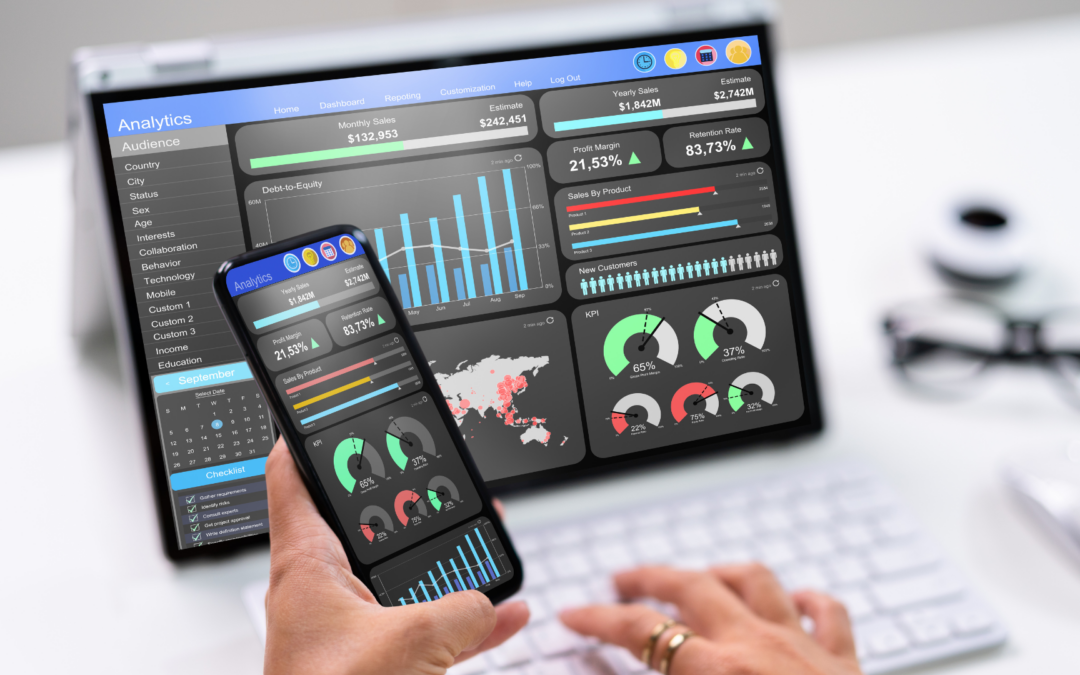In the digital age, the role of data in marketing has evolved from a supplementary element to the cornerstone of strategy development and execution. At Zen9 Marketing, we’ve seen firsthand how a data-driven approach can transform marketing efforts from guesswork into precise, targeted actions that deliver real, measurable results. This blog explores the critical role of analytics in marketing and the key metrics that matter most for businesses aiming to maximize their digital marketing ROI.
The Importance of Analytics in Marketing
Analytics offers a window into the behaviour, preferences, and engagement patterns of your target audience. By harnessing the power of data, marketers can make informed decisions, tailor campaigns to meet the unique needs of different customer segments and optimize strategies in real-time for better outcomes. In essence, analytics turns vast amounts of data into actionable insights, enabling marketers at Zen9 to craft strategies that are both effective and efficient.
Key Marketing Metrics to Monitor
- Traffic Sources: Understanding where your website traffic comes from (organic search, social media, direct visits, referrals) is crucial. It helps in identifying the most effective channels for engagement and investment.
- Conversion Rates: Perhaps the most critical metric, the conversion rate tells you the percentage of visitors who take a desired action (making a purchase, signing up for a newsletter). This metric is a direct indicator of the effectiveness of your marketing campaigns and website design.
- Customer Acquisition Cost (CAC): This metric calculates the total cost of acquiring a new customer, including all marketing and sales expenses. Keeping a close eye on CAC helps ensure that you’re not spending more to acquire a customer than they’re worth to your business.
- Customer Lifetime Value (CLTV): CLTV predicts the total value your business can expect from a single customer account. It’s a critical metric for understanding how much you should invest in maintaining and acquiring customers.
- Engagement Metrics: Engagement metrics, including page views, time on site, and social media interactions, provide insights into how compelling and relevant your content is to your target audience.
- Bounce Rate: The bounce rate—the percentage of visitors who navigate away from your site after viewing only one page—can offer insights into the relevance and quality of your site content or the user experience.
- ROI (Return on Investment): Ultimately, the success of marketing campaigns is measured by the ROI. This metric calculates the profitability of your marketing efforts and is essential for evaluating the effectiveness of different strategies and channels.
Making Data-Driven Decisions
At Zen9 Marketing, we believe that the true power of analytics lies in its ability to inform decisions and drive actions. By closely monitoring the metrics that matter, our team can adjust strategies in real-time, allocate resources more effectively, and achieve better outcomes for our clients. Data-driven marketing is not just about collecting data; it’s about translating that data into strategic insights that can lead to improved customer experiences and business growth.
The Future of Data-Driven Marketing
As technology advances, the future of data-driven marketing looks promising, with emerging trends like predictive analytics and AI-powered insights offering new ways to understand and anticipate customer behaviour. These technologies promise to make marketing more personalized, efficient, and effective, ushering in a new era of digital marketing that is not only driven by data but is also predictive and proactive.
In the rapidly evolving digital landscape, the ability to harness and interpret data has become a fundamental aspect of successful marketing. At Zen9 Marketing, we’re committed to staying at the forefront of this data-driven revolution, leveraging the metrics that matter to drive success for our clients. By understanding and acting on the insights derived from analytics, businesses can not only achieve their marketing goals but also set new standards for what is possible in digital marketing.
Harnessing Predictive Analytics for Smarter Campaigns
While tracking key marketing metrics is essential, incorporating predictive analytics can take your strategy to the next level. Predictive analytics uses historical data, machine learning, and AI to anticipate future trends and customer behaviors. For example, instead of simply tracking which customers are most likely to convert, predictive analytics helps marketers understand when they are most likely to convert, allowing for more timely and targeted campaign execution. This approach not only optimizes engagement but also maximizes ROI, making your marketing more proactive rather than reactive.
By leveraging predictive models, businesses can forecast customer lifetime value (CLTV) and customer acquisition cost (CAC) more accurately, allowing for smarter budget allocation. In fact, companies using predictive analytics report an average ROI increase of up to 25%, according to industry studies. With this forward-looking approach, Zen9 Marketing can help businesses tailor their campaigns to meet customer needs before they arise, creating a competitive edge in today’s fast-paced digital world.



